

Tao Te Ching
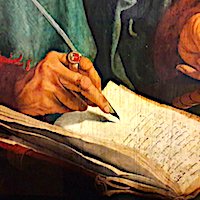
Historians / Journalists Lineage
Voices of Truth (and deception)
We put historians and journalists together because journalists seem mainly historians of contemporary times and though their writings may be describing today’s events, today quickly fades into tomorrow and the dim mysteries of the past. Although history is said to be written by the victors, the truth most-often finds a way of meandering back into the light of consciousness. Unfortunately though, this temptation for politicians to manipulate and change the historical record has frequently led to the persecution and censoring of these historical record-keepers.
As is said, “the past is fiction;” but also, “If we don’t learn from history we’re bound to repeat it.” How much of what we know of as “history” is really “true?” When stories passed between friends get so quickly distorted, how can we take as “true” stories passed down to us from hundreds and thousands of years ago? What is myth and legend, what accurate reporting? Why do some stories and events become immortalized and others completely lost in obscurity? And most importantly, does it really matter? If the stories, events, and people of history are - like all words - mainly “fingers pointing at the moon,” symbols and lessons for us; what difference does the detailed accuracy make? And yet, as travelers on the path of our life experience; the wisdom, books, teachings, and quotations from the past become our shoes, bicycles, cars, trains, and planes taking us toward our true selves, awakened awareness, enlightenment.
Because of the many heroic, creative, and artistically, strategically, and wisdom-gifted historical figures; it’s tempting to nostalgically idealize the past and think in terms of bygone golden ages. We forget how far every historical sage, there were tens of thousands of sleep-walking, superstitious, materialistically-controlled contemporaries. This ratio may become the most useful gauge of progress and the evolution of consciousness. And by most statistical measurements, this ratio has continuously increased through the ages.
People (100)
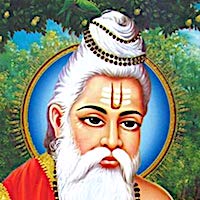
Vyasa व्यास
c. 3000 BCE
Hindu immortals, Vishnu avatar, 5th incarnation of Brahma
“The one who classified the Vedas,” one of the seven Hindu immortals, and Vishnu avatar; Vyasa became author of the Mahabharata. Also credited with writing the eighteen major Purāṇas; he compiled, documented and categorized many ancient Indian texts that had been passed down through long oral traditions. The 10th Sikh guru, Gobind Singh described him as the 5th incarnation of Brahma and praised him for preserving the ancient Vedic knowledge.

Homer
850 BCE - ?
Primogenitor of Western culture
Called by Plato the “first teacher” and "leader of Greek culture,” Homer spread an immense influence over all Western culture. A blind bard prophet, his books the Iliad and Odyssey represent the first European literature as well as one of the main influences that shaped Western culture. The “Greek Bible,” these books taught the best behavior for almost any situation with true and timeless images of human goodness and wisdom. Describing the most enduring legends known to the Western world, these universal themes inspire and enlighten.
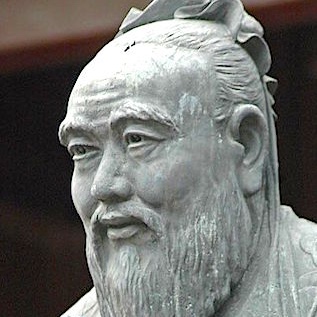
Confucius 孔丘 (Kongzi, Kǒng Zǐ)
551 – 479 BCE
History's most influential "failure"
Probably the most influential failure in history, Confucius wanted to be a political advisor, found only one job doing that but unsuccessfully as was the rest of his life attempts at being an administrator. Early Confucian scholars were killed and their books burned. After he died though, his teaching shaped the next 2300 years of Chinese educational, governmental, and cultural practice. He was the first in recorded history to set up an educational program to train people for governmental roles. Calling himself a "transmitter who invented nothing,” his tradition did not become a religion but instead a non-theistic, humanistic understanding of secular morality that stressed having rulers appointed based on merit rather than birth, rule by personal example rather than fiat, acting out of awareness and experience rather than only following rules.
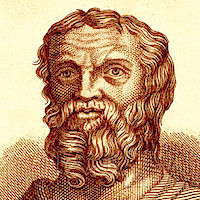
Herodotus Ἡρόδοτος
c. 484 - 425 BCE
“The Father of History”
“The Father of History” and first known historian to systematically collect and investigate facts, Herodotus described the purpose of his efforts “to prevent the traces of human events from being erased by time, and to preserve the fame of the important and remarkable achievements.” While the accuracy of his accounts is often questioned, he worked hard to corroborate his stories. From an internationally-minded port city and widely traveled, he describes many of his accounts from an eye-witness perspective. With an overarching theme of civilizations in conflict, he collected oral histories during his travels, thought about their meanings and interpreted them. Not only reporting on ancient science, he also speculated on scientific, cultural, geographical, and historical questions. His role in bringing ancient wisdom into modern understanding is immense.
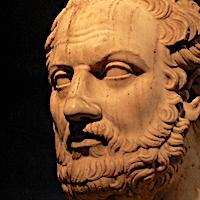
Thucydides Θουκυδίδης
460 – 400 BCE
"Father of realpolitik"
General, Athenian historian, and "father of "scientific history;" Thucydides wrote one of the world's most influential books, History of the Peloponnesian War. The United States Founding Fathers—ironically because he hated democracy—used him as a guide for their proposed decision making process. Still studied in military colleges and universities, his theories, analysis of historical events and international relations help explain the cycles of human nature interacting with war, plagues, and other various crises. Along with Hobbes and Machiavelli, a founding fathers of political realism, he focused on understanding the cause and effect of events but also believed that history is too irrational to predict.
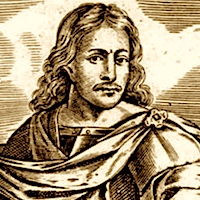
Xenophon of Athens Ξενοφῶν
(430–354 BCE)
General, Socratic biographer, philosopher
Much like Plato, Xenophon was a student and biographer of Socrates. These two biographical descriptions (the only surviving examples of contemporary Socratic dialogue) differ widely however sparking an historical debate about what Socrates was really like. Bertrand Russel wrote that Xenophon “was not very liberally endowed with brains and on the whole conventional” (Others though like Montaigne, Rousseau, and Benjamin Franklin praised his intellect.) but also “the excellence of Plato as a writer of fiction throws doubt on him as a historian” so obscure mystery must remain surrounding Socrates. As a Greek general, historian, mercenary, as well as philosopher; Xenophon’s approach and descriptions reveal the more pragmatic and political view.
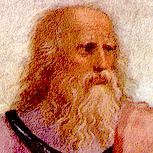
Plato Πλάτων
428 – 348 BCE
Founder of the Western world’s first and longest-lived university, one of the most influential philosophers in all history; Plato used the influence of his teacher Socrates, the skill of his student Aristotle, and his own personal genius to establish the foundation of Western science. Founder of process philosophy, Alfred North Whitehead described all of European philosophy as “footnotes to Plato.” Nietzsche described Christianity as "Platonism for the people" and Christianity is indeed infused with Platonic thought that also profoundly influenced Saint Augustine, one of the most respected Christian philosophers. Platonic thought has continually revived through the ages dominating the Middle Ages, inspiring th Renaissance, and continues as a profound influence today.

Demosthenes Δημοσθένης
384 – 322 BCE
Orphaned at the age of seven, called “blazing thunderbolt,“ read more than any other ancient orator, and one of the 10 greatest ancient Greek speakers; Cicero said Demosthenes was “the perfect orator” who “stands alone among all.” Self-taught by studying famous speeches and overcoming a serious speech problem by speaking to the sea with pebbles in his mouth; he used his prodigious skills to influence political sentiment attempting to keep Athens free and independent. His group of paid orators were considered one of the least respected professions and presaged the lawyers and professional politicians of our time. He sometimes prepared arguments for both sides in a case and became rich supporting unethical positions he didn’t believe in but wound up suffering and dying for views he was paid to defend. Though exemplifying both the best and worst of the legal profession he helped spawn, he inspired The Federalist Papers, the French Revolution orators, Henry Clay, and Friedrich Nietzsche.
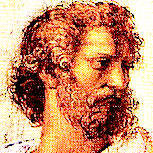
Aristotle Ἀριστοτέλης
382 – 322 BCE
Famous student of Plato and teacher of Alexander the Great, the first to organize a group to do scientific research, to systemize Western philosophy, to formalize a system of logic and to develop a theory of evolution; Aristotle is considered "The First Teacher" by Muslims and a profound influence on Judaism and Christian theology that extended through the Renaissance and continues today. Though only about one third of his writings remain and much more a proponent of the words rather than the sense, Cicero described him as "a river of gold,” Dante as “the master of those who know,” and through 1500 years of European history, “the philosopher.” He taught virtue as the secret of happiness, politics as the art of compromise between classes, and politically creating a balance between faith and reason, equality and freedom.
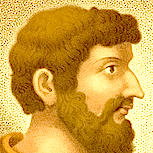
Callimachus Καλλίμαχος
310 – 240 BCE
Apostle of creativity and individuality, Callimachus suggested we "abhor all common things.” Descended from the first Greek Royal family that reigned in Africa, he was one of the first critic-poets and led the trend of rejecting the Homeric epic style in favor of epigrams and short poems. A major influence on Ovid and Latin poetry in general, he invented for libraries what may have been the first bibliographical survey that listed, categorized, and identified where literary works could be found. Teacher to Eratosthenes, he wrote one of the earliest love stories in all literature with a theme since retold by millions of poets and novelists.
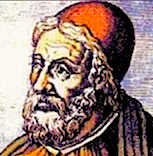
Eratosthenes ρατοσθένης (of Cyrene)
276 – 195 BCE
Chief librarian of Alexandria, student of the best teachers of his age: the Stoic founder Zeno, the first serious academic Stoic Arcesilaus, the famous poet Calimachus, and grammarian Lysanias; Eratosthenes invented geography (his terms still used today), made the first Western map of the world including parallels and meridians, calculated the circumference of the Earth and the tilt of its axis for the first time, invented leap day, accurately measured the distance from the Sun to the Earth, and founded “scientific chronology.” The first geographer to mention the Chinese, he criticized the Greek chauvinism of describing foreigners as barbarians and recommended judging people as individuals instead of as members of religious, cultural, or national groups.
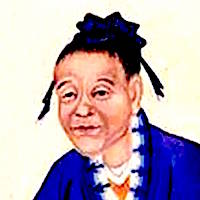
Sima Qian 司馬遷 (Ssu-ma Ch'ien)
145 – 86 BCE
Father of Chinese historians
Father of Chinese historians, Court Astrologer, and and for centuries considered author of the greatest history book ever written; Sima Qian—although imprisoned, castrated, and enslaved—managed to write a monumental and innovative history of China including a series of biographies that went back more than 2000 years. His writings and writing style had a deep influence on Chinese, Korean, Japanese, and Vietnamese cultures. Sorting through myth and imagination, he went beyond the tradition of only writing about the emperors and generals, used more than 75 books to cross-check for accuracy, refused to include information he couldn’t verify, and traveled extensively interviewing people about their personal experience of events. He wrote the earliest known biography of Lao Tzu.

Anonymous
-800 to present
Freedom from the narrow boxes defined by personal history
Anonymous (5000 BCE - )
Most of us, most of the time stay busy trying to impress people looking for approval, praise and fame. This enslaves and sells our souls to the tyrants of public opinion, the status quo, and to external personal whim. As an antidote to this, the cloak of anonymity opens wide doors of personal expression, creativity, and innovation. In ancient times, perhaps less personal ego fostered this approach, perhaps names were just eroded away by time as is surely the case with many of the quotations that comes to us through the annals of history, perhaps people needed to avoid religious or political persecution. The venerable tradition of using pseudonyms exemplifies both the need and benefit of freeing ourselves from the narrow boxes defined by our personal histories.
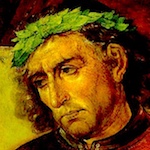
Virgil (Publius Vergilius Maro)
70 – 19 BCE
“The most lovable of Romans” and its greatest poet, advocate/inspiration/teacher for small farmers, Dante's guide through hell and purgatory, considered a great magician, seer, and saint as well as the embodiment of human knowledge and experience; Virgil began life as a poor farmer and once had to swim for his life to escape soldiers. Given patronage by Augustus he wrote the Aeneid that became the Roman national epic and standard text for school curricula after Augustus refused Virgil’s dying wish to have it burned. For hundreds of years his poems were opened at random as an oracle for insight into uncertainty and to solve problems.
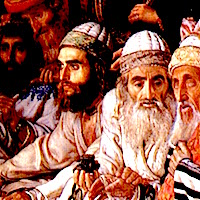
Rabbinic Sages
20 – 200 CE
Rabbinic Sages (20 – 200 CE)
Academies in Galilee, Tiberias and Caesarea; teachers of the Mishnah, transmitters of the Jewish traditions passed down for centuries orally, and written down during the first 200 years of this millennium; these sages taught and recorded commentaries and reflections on the Hebrew Bible. Their writings became the foundation of Jewish law, ethics, philosophy, and customs eventually evolving into over 6,200 pages.

Plutarch (Lucius Mestrius Plutarchus)
46 – 120 CE
Teller of tales and distiller of wisdom, philosopher, magistrate and Delphic priest; Plutarch was frequently paraphrased and quoted by Shakespeare. Ralph Waldo Emerson called his writings "a bible for heroes,” Montaigne's Essays include over 400 references, and he was admired by Boswell, Ben Jonson, Alexander Hamilton, John Milton, Louis L'amour, Francis Bacon, and Robert Browning. An example of Mencius’ sage whose words and actions cause the stupid to become wise, Plutarch remains an enormous influence on world literature as well as an example of finding meaning, inspiration, and profound lessons from experiences and events.
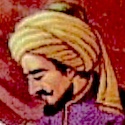
Al-Kindi (Abu Yūsuf Yaʻqūb ibn ʼIsḥāq aṣ-Ṣabbāḥ)
801 – 873 CE
While European countries were still stuck in the dark ages of almost universal superstition and ignorance, Al-Kindi - knows as “father of Arabic philosophy” - precipitated the “Moslem Enlightenment,” one of the true golden ages of human history, a time that threw off its dogmatic shackles of uncritical belief and advanced science, direct experience unfettered by external sources, understanding of the sense and not just the words. A famous historian, physician, polymath, musician and mathematician; he brought Hellenistic wisdom into the Muslim world and shocked his contemporaries by appreciating Christianity.

Atisha ཨ་ཏི་ཤ་མར་མེ་མཛད་དཔལ་ཡེ་ཤེས་ (Atiśa Dīpaṃkara Śrījñāna)
980 – 1054 CE
One of the major figures in classical Buddhism, Atiśa inspired students and teachers from Tibet to Sumatra. Born into royalty in the capital of the Pala Empire, Atiśa became a monk and scholar said to have studied with more than 150 different teachers. Founder of the Kadam School, he traveled and taught widely. In The Seven Points of Mind Training he condensed Buddhist teachings into easy-to-remember slogans. The lineage of people using this technique includes Aesop, Balthasar Gracian, Ben Franklin, Erasmus, Yang Xiung as well as The Dhammapada.
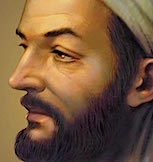
Avicenna أبو علي الحسين بن عبد الله بن الحسن بن علي بن سينا (Ibn-Sīnā)
980 – 1037 CE
Persian polymath, spur to the Islamic Golden Age, poet, doctor, scientist, philosopher and one of the most significant thinkers and writers of his time; Avicenna wrote over 450 books one of which became the standard medical text for European universities up until as late as 1650. With influence from Plato and Aristotle, he clarified the distinction between the words and the sense, taught a spiritual path beyond motivations of hope and fear, reconciled the conflict between reason and faith, and his works according to Will Durant, “mark the apex of medieval thought and constitute one of the major syntheses in the history of the mind.”
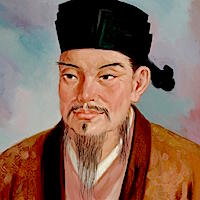
Zhou Dunyi 周敦頤 (Chou Tun-i)
1017 – 1073 CE
First philosopher to popularize the yin-yang symbol, founder of Neo-Confucianism, famous for his authenticity, and major influence on the greatest Confucian thinker since Confucius, Zhu Xi; Zhou Dunyi emphasized living in accord with nature by understanding the relationship between universal forces and the best human conduct. Said to have loved grass too much to cut it, he exemplified the ideal of wu wei. He integrated many Buddhist and Taoist teachings with traditional Confucian concepts. Although an active government official throughout his life, he was mainly unknown and unappreciated working as a simple record keeper (like a modern-day journalist) during much of his life. Later though, one of his books became the basis for neo-Confucian ethics and Zhu Xi called him “the first great sage of the Song Dynasty.”
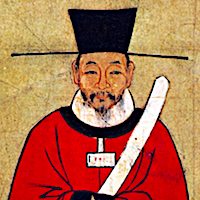
Sima Guang 司马光
1019 – 1086 CE
"Greatest of all Chinese historians”
“The greatest of all Chinese historians,” politician, scholar-official, and major cat-breeder; Sima Guang opposed Wang Anshi's reforms to help the poor against the rich but wrote a pioneering, universal history of China that influenced the world’s political evolution. Also a lexicographer, he spent decades writing his time’s most comprehensive dictionary that included 31,319 Chinese characters. His book, Family Precepts (司馬溫公家訓) became a powerful influence on both Chinese and Japanese culture. A genius with a monumental memory, Sima’s quick thinking when he was only 7 famously saved the life of his friend. He loved reading "to the point of not recognizing hunger, thirst, coldness or heat” and when involved with a complicated writing project, he slept on a wooden log so he would sleep less and be able to work more. His scholarship—far from just intellectual speculation—became a guiding force for emperors but during his life and after his death.
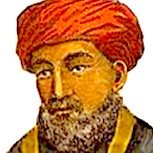
Solomon ibn Gabirol שלמה בן יהודה אבן גבירול (Avicebron)
1021 – 1070 CE
The greatest poet of his age, a Jew for over 600 years regarded by Moslems as a Muslim and by Christians as a Christian, believed a Christian by William of Auvergne who called him “the noblest of all philosophers;” Gabirol grew up in hardship and wandered for years in such poverty that “a fly could now bear me up with ease.” A huge influence on both Christianity and Islam, he championed reason over faith, compiled a book of proverbs independent from Judaism that included wisdom sayings from China, and wrote one of the greatest poems in all of Hebrew literature.
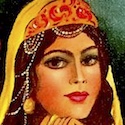
Arwa al-Sulayhi (Al-Malika al-Ḥurra)
1048 – 1138 CE
The stellar example in Muslim history of an independent queen; Arwa ruled Yemen, was the greatest leader during the Sulayhid Dynasty, and was - for the first time in the entire history of Islam - a woman given the title of hujja, the highest status in Islam. Extremely beautiful, intelligent, scholarly, brave, and powerful; she studied science, poetry, history, completed practical and beneficial infrastructure projects, supported agriculture, and built many schools. Her direct lineage continues today in both Yemen and India.

Hildegard of Bingen
1098 – 1179 CE
Circumventing her times’ strong prejudice and bans against women's social, artistic and theological participation, Hildegard became a famous writer, composer, botanist, philosopher, visionary, Christian mystic and the founder of scientific natural history in Germany. The first Westerner credited with describing the healing powers of food and corresponding with the political, religious, and scientific leaders of her day (popes, emperors, saints and scientists), she used her influence to combat corruption, promote spiritual insight, holistic healing, the arts, and women’s role in the world

Sun Bu'er
1119 – 1182 CE
Sun Bu'er 孫不二 (1119 – 1182)
Taoist priestess, one of the Seven Masters of Quanzhen, mother of 3, beautiful, intelligent, wealthy, and known as “Clear and Calm Free Human;” Sun Bu'er founded the Purity and Tranquility School and wrote many famous poems and secret Taoist texts. She developed a “science of essence” concerned with psychologically going beyond the influence of both inherited personality and learned conditioning as well as a “science of life” developing ways to increase health and energy. Destroying her beauty to prevent male attack, she became the only woman included in the famous Taoist “Seven Perfected,” and through the ages a role model and inspiration for women following a spiritual path.
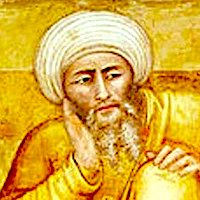
Averroes, Ibn Rushd ابن رشد
1126 – 1198 CE
Polymath, famous Islamic philosopher and scientist, theologian, and physician; Averroes took the position that the Koran and sacred writings were allegories and not to be taken literally. Arguing for an understanding deeper than just the literal meaning of texts, he popularized Aristotle and started a major Jewish and Christian philosophical movement but didn’t become influential in the Muslim world until the 19th century. In fact, during his lifetime, all his books that could be found were burned, he was removed from his positions, and exiled. Dante described him as he "who made the Great Commentary,” Chaucer listed him as a great medical authority, Raphael painted him into a fresco in the Apostolic Palace in the Vatican that depicts major philosophers, Borges featured him in one of his books, and a plant genus, a lunar crater and an asteroid were named after him.
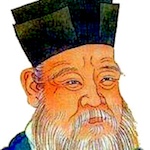
Zhu Xi 朱熹 (Zhū Xī)
1130 – 1200 CE
Called by historians the “second most influential thinker in Chinese history” and “one of the most influential people” in the last millennium, Zhu Xi blended Confucianism, Taoism, and Buddhism into a tradition called Neo-Confucianism. He synthesized ancient teachings into The Four Books which became the heart of the educational, bureaucratic, and governmental system for over 700 years in China as well as Japan, Korea and other countries. More Confucian than Buddhist or Taoist, the emphasis is on practical wisdom rather than the wisdom beyond words but still set a foundation for wise and compassionate government leading to peace and prosperity.
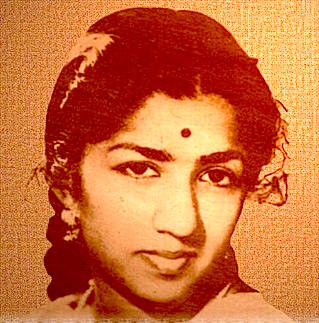
Razia Sultan Jalâlat-ud-Dîn Raziyâ (Raziya al-Din)
1205 – 1240 CE
Daughter of a Turkish slave who rose to become a sultan and the only woman to rule the Delhi Sultanate before or since; Razia devoted her rule to helping her people and established many libraries, research centers, and schools that went far beyond purely Islamic studies and included ancient philosophies, science, astronomy, and literature. Abandoning the veil, she was just, tolerant, and on religious matters emphasized the sense over the words, the spirit as more important than dogmatic belief. Her romantic love affair with Altunia is still famous and her inspiration continues in modern movies and TV shows.
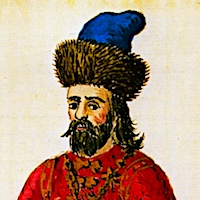
Marco Polo
1254 – 1324 CE
Epitome of adventurous business, political, and geographical exploration
Merchant par excellence, adventurous explorer, successful administrator for Kublai Khan in China, and popular author; Marco Polo became an inspiration for Christopher Columbus, the import-export global economy, and for most of the explorers who came after him. Setting off from Europe when only 17 years old, he spent 24 years in China becoming the governor of Hangzhou, returned to find his city of Venice at war with Genoa, tried to help but only ended up in jail where he described his travels to a cellmate who used them to write the famous book, Travels of Marco Polo. The difficulty and danger of travel in those days in illustrated by survival statistics: on their journey back from China, more than 600 people began with them but only 18 survived the 2-year journey to Hormuz. Later he expanded his business interests to become very wealthy, married and had three children. Frequently accused of exaggeration and fabrication, on his deathbed he responded to this criticism by saying, "I have not told half of what I saw."
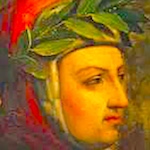
Petrarch
1304 – 1374 CE
The “Father of Humanism,” troubadour of romantic love, lover of nature, “Virgil born again,” the most famous unrequited lover, and most important poet of his age; Petrarch inspired an interest in ancient history and as “the first tourist” discovered and translated many old manuscripts including Cicero’s letters that sparked the 14th-century Renaissance. Holding the sense over the words, he challenged orthodoxy and invented new Latin terms to describe Greek philosophy, developed the concept of an historical “Dark Age” after the fall of Rome, a need for a cultural revival, inspired the political, military, and religious leaders of his time to ground their lives in classical values and contemplation. and his sonnets became a model for lyrical poetry through modern times.
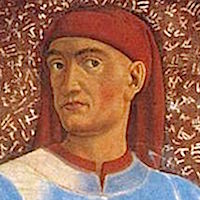
Giovanni Boccaccio dʒoˈvanni bokˈkattʃo
1313 – 1375 CE
Close student, friend and collaborator with the “Father of the Renaissance,” Petrarch; Boccaccio became a popular poet/writer, “the first Greek humanist in Western Europe,” and promoted the ancient literature, philosophy, and history which set the stage for the Renaissance. His book on classical mythology became a key reference for 400+ years and challenged Christian belief that only the Bible was relevant, that there was only harm in “pagan” writings. In an early nod to feminist proposition, he wrote the first collection devoted to the biographies of famous women. Living through a tumultuous time of political intrigue, the executions of his friends, bitter poverty and bad health; he resisted many of the era’s superstitious and setting-sun forces; translated works by Homer, Euripides, and Aristotle; and helped launch one of history’s most influential shifts, the Renaissance.
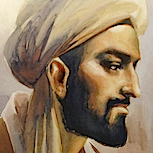
Ibn Khaldun أبو زيد عبد الرحمن بن محمد بن خلدون الحضرمي
1332 – 1406 CE
One of the world’s greatest political theorists, considered one of the greatest philosophers of the Middle Ages, a founding father of modern economic theory, sociology, and demography; Ibn Khaldun was a a North African Arab historian who defined government as "an institution which prevents injustice other than such as it commits itself" and taught that government is a necessary evil that should be constrained to a minimum. Toynbee described his writing as “the greatest work of its kind that has ever yet been created by any mind in any time or place” and his influence is still strong throughout the world.
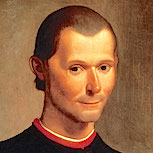
Machiavelli (Niccolò Machiavelli)
1469 – 1527 CE
Unjustly vilified by history as well as his contemporaries, Machiavelli is known as the “founder of modern political science,” a major influence on the USA’s founding fathers, and the development of modern science. Personified with unscrupulous, immoral political activity, devious deceit, realpolitik and evil tyrants; many of history’s true heroes like Spinoza, Rousseau, Francis Bacon, John Milton, Montaigne, and Descartes secretly considered him an inspiration for the Enlightenment that followed 200 years later. Rousseau thought his book The Prince - far from condoning - was not written as advice to ruler who already understood these principles but rather satirically exposed their corrupt methods to the common people. Not the source for the quote, “The end justifies the means,” Benjamin Franklin and Thomas Jefferson considered him a “partisan of liberty” and John Adams seriously studied his philosophy and used it to clarify the Constitution’s idea of mixed government.
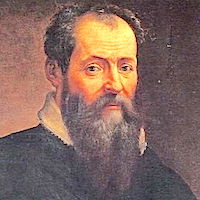
Giorgio Vasari dʒordʒo vaˈzaːri
1511 – 1574 CE
The first art historian, friend and student of Michelangelo, first to use in print the term "Renaissance,” architect, politician and painter; Vasari praised competition and was one of the first writers to use this term related to economics. The first to write a series of biographies about famous artists and describe the continuity of art, his dedication to artists and their art was so great that he once ran into the peril of a rioting crowd to rescue the pieces from an arm of Michelangelo’s statue “David” they had broken with a bench. Unlike many artists unrecognized until after their death, he was famous during his lifetime, became very wealthy, and even a powerful politician.
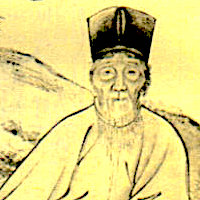
Sun Qifeng 孫奇逢
1583 – 1675 CE
孫奇逢 (1583–1675)
Professor, poet, respected scholar who passed the imperial exams at only 13 years old, and one of the most famous masters of Confucian ethics; Sun Qifeng helped China transition from the Ming to the Ching dynasties. Critical of the Ming control by eunuchs, he followed the neo-Confucian philosophy but emphasized its practicality, the concept of basic goodness, and the importance of nourishing goodness. Often invited to take prestigious governmental offices, he refused preferring a quite life of study. A precursor of—and inspiration for?—Arnold Toynbee, he looked at the rise and fall of dynasties (as well as individual success and failure) through the lens of the I Ching and left a treasury of books including popular commentaries on the Four Books, biographies of 11 famous, Confucian masters, and the history of 146 philosophers and their teachings.
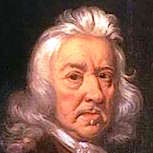
Thomas Hobbes
1588 – 1679 CE
Secretary, student, friend to Francis Bacon; Hobbes established the foundation for most modern political philosophy. Formulating social contract theory, he promoted individual rights, natural equality, government based on the will of the people, only representative government as legitimate, and the freedom to do anything that laws don’t forbid. He described human nature as “self-interested cooperation” and introduced mathematical reasoning to the philosophy of science. Though called “the father of totalitarianism” and fixated on peace and order, his radical shift from religion and belief to applying science for understanding human nature helped undermine that same “order” creating more personal, political freedom.
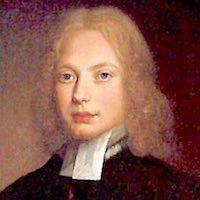
Jonathan Swift
1667 – 1745 CE
"Foremost prose satirist in the English language"
Poet, cleric, satirist, and political essayist; Swift became the most popular Irish author. His book, Gulliver’s Travels became the most popular work of Irish literature in international libraries. Although George Orwell said he disagreed with him on almost every issue, he listed him as one of his most-admired writers. Deeply involved in politics, he published many powerfully influential political pamphlets—all so provacative he had to publish anonymously or use a pseudonym.
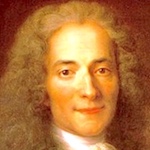
Voltaire, François-Marie Arouet
1694 – 1778 CE
Nemesis to tyrants and fanatics of all styles, powerful fighter for civil rights, separation of church and state, freedom of speech and religion; Voltaire drank up to 72 cups of coffee a day and wrote more than 2,000 books and pamphlets. Admiring Confucian ethics and political theory, his writings inspired the founders of America, the best thinkers of his time, numerous kings, queens and world leaders, millions of people in every generation since. To a large extent we owe to his influence much of the freedoms in the world today; the humane treatment of the insane, sick, and criminal; the number of libraries, schools, and universities for common people. Historian Will Durant wrote, “When we cease to honor Voltaire, we shall be unworthy of freedom.”

Benjamin Franklin
1706 – 1790 CE
Beginning his adult life as a penniless runaway, Franklin became one of the world’s most admired people. He was a founding father, diplomat, scientist, philosopher, businessman, inventor, and the politician most responsible for winning the Revolutionary War. His inventions included the lightning rod, bifocals, the Franklin stove, and he helped start many new civic organizations including voluntary fire departments and paid police forces. He recreated the slogan/quote tradition of Aesop and Atisa that we continue in our “Comments” link.
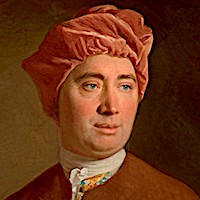
David Hume
1711 – 1776 CE
"One of the most important philosophers"
Hume's father died when he was two and his mother encouraged his education which developed him into a true polymath in philosophy, mathematics, science, economics, history and literature. His writing career began when he was only 16 but—popular with the ladies and aristocratic society—he kept most of his controversial, influential writings secret and they weren't printed until after his death. Mainly recognized as an historian during his life, his post-mortemly published philosophical works became a major influence on thought leaders like Francis Bacon, Descartes, Newton, Locke, Berkeley, Adam Smith and all who came after them. Kant said that Hume woke him up from his "dogmatic slumbers."
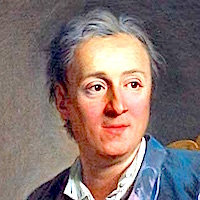
Diderot
1713 – 1784 CE
Philosopher, art critic, scientist, and writer; Diderot was imprisoned in solitary confinement for his philosophical views and mainly only known for his plays and encyclopedia during his lifetime. His rival Rousseau though believed posterity would give him the same respect as Aristotle and Plato and he was later admired by Goethe, Schiller, Balzac, Zola, and Schopenhauer. He was Karl Marx’s favorite prose writer and Comte called him the “foremost intellectual of an exciting age.” He worked on the Encyclopédie as a way of giving power to the common person and emphasized religious tolerance, freedom of thought, the value of science, and—threatening the French aristocracy—maintained that the main purpose of government should be benefiting the common people.
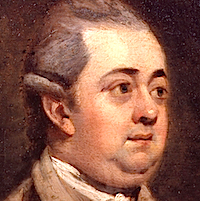
Edward Gibbon
1737 – 1794 CE
One of history’s most important historians, Gibbon made groundbreaking contributions to our understanding of not only the Decline and Fall of the Roman Empire but to the factors that help or hinder the rise and fall of all countries, governments, and civilization itself. From an objective perspective that appreciated the civilizing influence of religion while maintaining a skeptical, non-believing openness; he examined the impact of Christianity and organized religion on a free. healthy, diverse society. His conclusion was that while they addressed deep psychological needs, they easily become subservient to political power and their main influence undermined the evolution and establishment of a sane and just society.
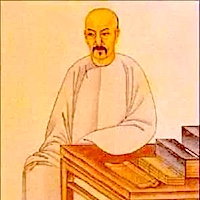
Zhang Xuecheng 章学诚 章学诚 (Chang Hsüeh-ch'eng)
1738 – 1801 CE
A famous historian, philosopher, and writer who was mainly unknown during his lifetime dying in poverty with few friends; Zhang Xuecheng's fame only began almost 100 years after he died. A revolutionary thinker, he crossed the status quo view that Confucianism is based on timeless principles and described it as an evolving set of realizations deepening as it faced and explained contemporary changes. He condemned self-serving partisanship, encouraged diversity, and individuation. A true advocate for the words over the sense, he emphasized the need to transcend language rather than becoming a slave to concepts. His focus on China's difficult struggle to blend the strong Taoist, Buddhist, and Confucian traditions into what's called now neo-Confucianism; has a powerful relevance to our own time of intense cultural, political, and religious amalgamation.
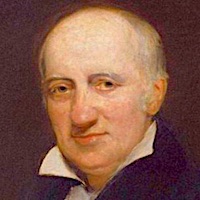
William Godwin
1756 – 1836 CE
Provocative and influential social, political, and literary critic
Mary Shelley’s father, married to pioneering feminist Mary Wollstonecraft, journalist, philosopher, publisher, translator, and author; Godwin became the first to promote utilitarianism and modern anarchism. He attacked aristocratic privilege, advocated the abolition of marriage, wrote numerous novels, and became a major influence on British literature and culture. His views on progress, life extension, and human perfectibility gave inspiration for his daughter’s novel, Frankenstein. He opposed Malthus, became a literary influence on Dickens and Poe, a political influence on Peter Kropotkin, libertarianism, and communism.
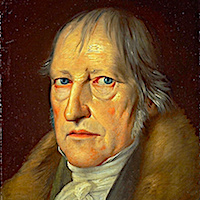
Georg Hegel (Wilhelm Friedrich)
1770 – 1831 CE
Dialectical Philosopher
influential philosopher, developer of "absolute idealism," and political theorist; Hegel worked to integrate history, religion, and art into his philosophy. This led to an integration of dualisms and an amplification of Fichte's thesis-antithesis-synthesis triad. His methods became deeply influential on both contemporary and later schools and thought leaders—even for those who strongly disagreed with his philosophy like Kierkegaard, Marx and Engels—existentialism, Historical materialism, and British Idealism. His writings—rejected and banned by both right wing and left wing politicians—became an incipient influence on many or most of the philosophical schools that came after him: Marxism, phenomenology, German existentialism, and even psychoanalysis
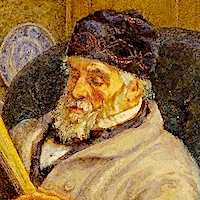
Thomas Carlyle
1795 – 1881 CE
"Great Man” theory of history creator
Historian, philosopher, translator, mathematician, and one of his era’s most influential social commentators; Carlyle developed the “Great Man” theory of history. He postulated and described how the world’s great changes were all caused by the decisions and actions of a very small and elite group of prime movers. He emphasized the essence of heroism as a response to intense challenge and difficulty rather than inherent qualities. In later life, these ego-based theories unfortunately led to a critique of democracy, justifications for fascism, nostalgia for slavery, and support for repressive government. His work in mathematics led to innovative methods still used today and one of his books on the French Revolution inspired Dickens' novel, A Tale of Two Cities.
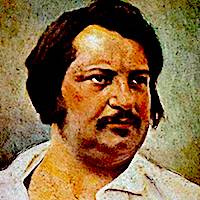
Balzac (Honoré de Balzac)
1799 – 1850 CE
(–1850)
Novelist, playwright, journalist, founding influence on European realism; Balzac only lived 51 years but wrote 92 novels, many short stories and plays. Famous for his 2000+ morally ambiguous and multi-faceted characters, he called himself a “Secretary of Society” and thought of his novels as a kind of history. He pioneered and made popular both the “novel of ideas” and the multi-generational, sequencing novel that carried characters from one story and period of their life to another. A dramatic failure in most of his life, he ran for a political office but only received 20 votes while just one of the other candidates had almost 160,000. No matter how much money he made, he was never self-supporting because of an insatiable appetite for luxuries and he had to frequently change homes and names to hide from creditors. Multiple business ventures failed miserably but his money-making optimism didn’t fade. His influence extended to luminaries like Émile Zola, Charles Dickens, Jack Kerouac, Henry James, Akira Kurosawa and Friedrich Engels among many more.
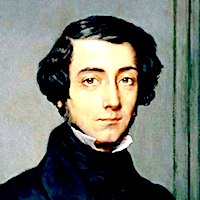
Alexis de Tocqueville
1805 – 1859 CE
Pioneering researcher into the conflicts between freedom and equality
French diplomat, historian, political scientist, and one of the founding theorists of sociology; de Tocqueville analyzed social conditions, living standards and the relationship of the individual to the state. Active in politics and strong proponent of political freedom, he traveled through the United States in an effort that produced one of the most influential books of the time—Democracy in America—as well as helping Europe transition from an aristocratic to a more democratic political order. Although the rallying cry of the revolutions he supported was “Freedom and Equality”, he described the conflict between the two and the need for balance. Pointing out the potential of a tyranny of the minority, the dangers of individualism, materialism, and majority rule leading to mediocrity; he predicted many of the social issues we grapple with today.
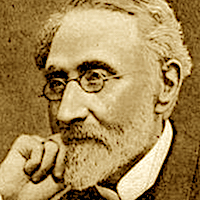
Heinrich Graetz
1817 – 1891 CE
Pioneering Jewish historian
Although Graetz became the most esteemed 19th century Jewish historian and one of the first to write a major Jewish history from a Jewish perspective, he was sued for libeling the Jewish religion and later accused of heresy. In spite of that, his history became very popular and influential. It was a ground-breaking effort and brought to the world a new interest in Jewish history. Later historians accused him of presenting a too weepy view of this history, an over-emphasis on the tragic suffering, and an ignoring of the more positive and joyful events; however, his deeply difficult and pioneering works remain.
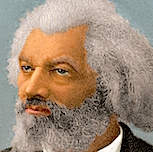
Frederick Douglass
1818 – 1895 CE
International symbol of social justice
Escaped slave, most influential 19th century black leader, adviser to Abraham Lincoln, champion of the working class, author, orator, and newspaper editor; Douglass eloquently agitated for the abolition of slavery, racism and capital punishment; for women’s rights, free public education, and land reform. Calling racism a “diseased imagination,” he convinced Lincoln to let blacks fight in the Civil War and helped enlist troops. Internationally famous, author of an American classic autobiography, a father of liberation theology, and the first African American in many political positions; his memory symbolizes and inspires the spirit of people everywhere to resist oppression and work for social justice.
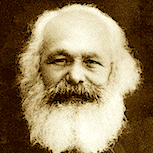
Karl Marx
1818 – 1883 CE
A journalist, philosopher, scientist, and “true founder of modern sociology” and social science; both critics and followers rate Marx as one of the most influential people in all history with a profound impact on world politics, intellectual thought, sociology and economics. A philosopher for the poor and middle classes, he described the economic conflicts of interest that alienate and polarize society between the working classes and the plutocracy. Distorted, corrupted and used by Lenin, Trotsky, Mao, and many other totalitarians; appreciated, developed, and applied by progressive political parties, labour unions, intellectuals, and artists; he brought the scientific method into politics and social theory as well as a powerful alternative to the dehumanizing aspects of capitalistic industrialization. Though questionable in many ways, his work produced a practical and powerful balancing of economic extremes, the exploitation of labor, and the corruption of politicians by the rich. Though more known for his critiques of capitalism, he also appreciated its positive impact on increased productivity, technological progress, and scientific breakthroughs.
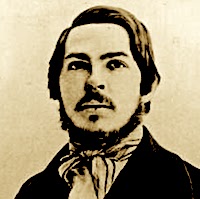
Friedrich Engels
1820 – 1895 CE
Businessman-philosopher, political theorist
Co-author of The Communist Manifesto, polyglot speaking 9 languages, businessman, poet, journalist, philosopher; Engels grew up in a wealthy family that owned and operated large factories. He saw the horrible, slave-like working conditions, long hours, environmental degradations, and child labor from a very clear, first-hand perspective. He financially supported Karl Marx, edited his writings, and wrote influential books of his own. Together they organized workers, envisioned egalitarian societies, and developed communist theory. In spite of his dedicated, political activism, in order to finance Marx’s work, he reengages in many successful business ventures. Risking imprisonment, hiding from police, and participating in armed rebellions; his efforts to create a more equitable world went far beyond theory and speculation. Although claimed as inspirational founder of Stalin’s Soviet Union, his emphasis on individuality and the appreciation of literature, music and culture set his true philosophy in direct odds against Stalin. While most of the credit for Marxist theory went to Marx, Engels—behind the scenes editing, filling in gaps, and amplifying—may have had a more important influence. He lived with the fierce, Irish radical Mary Burns for over 20 years until her death; but, because they both considered state and church-controlled marriage a form of oppression, never married.
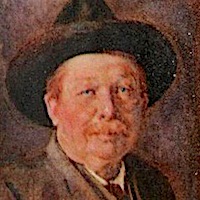
Joel Chandler Harris
1848 – 1908 CE
An outsider born out of wedlock and abandoned by his father, Harris saw the world from two points of view: from the privileged White and from the disadvantaged, under trodden but soulful Black. This led to a dual career: Joe Harris as journalist supporting racial reconciliation and North-South reconciliation as well as the Joel Chandler Harris who wrote 29 books and brought the oral African-American 'Brer Rabbit' stories and more racial respect into the mainstream culture. During the civil war, he worked for a Confederate loyalist on a plantation; but, because of his illegitimacy and red hair, felt more comfortable with the slaves and spent almost all his free time with them. His use of dialect revolutionized literature and was a major influence on Mark Twain, Kipling, A.A. Milne, Beatrix Potter, Faulkner, Ezra Pound, T.S. Eliot, and James Joyce.

Paul Carus
1852 – 1919 CE
The Teachings of Lao Tzu
Self-described as “an atheist who loved God,” Paul Carus was one of the first Americans with a serious interest in Buddhism. He saw Taoism and Buddhism as complementary and published 75 books and 1500 articles on social issues, history, science, religion, politics, logic, anthropology and mathematics. He worked closely with D. T. Suzuki and corresponded with thought-leaders of his time like Tolstoy Thomas Edison, Nikola Tesla, and Booker T. Washington. He defined his philosophy as, “everything is fraught with life; it contains life; it has the ability to live” and promoted a “Religion of Science,” interfaith dialog, and a “cosmic religion of universal truth.”
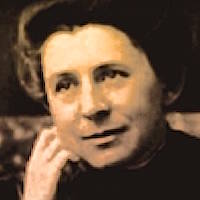
Ida Tarbell
1857 – 1944 CE
Journalist, author, teacher, and leading authority on Abraham Lincoln; Ida Tarbell invented a new kind of reporting now called investigative journalism. She developed new techniques like researching public documents scattered across the country and then, based on this research, interviewing executives, academics experts, and government regulators. With a little help from Mark Twain, she applied these new methods to an exposé on the Standard Oil Company and John D. Rockefeller who she described as viciously money-grabbing, miserly, and harming the country with his monopolizing of oil. This ushered in what’s now called the “the era of muckraking journalism,” brought down one of the world's worst tycoons, broke up the Standard Oil monopoly, and inspired a play with 686 continuous performances setting the record for any New York play.
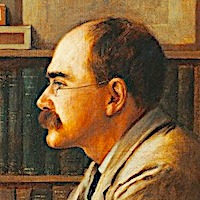
Rudyard Kipling
1865 – 1936 CE
Greatest—in-English—short-story writer
Journalist, poet, novelist, major short story writing innovator, youngest and first Englishman to receive the Nobel Prize in Literature; Kipling was born in India and quickly became one of the most popular prose and verse writers of his era. Accused by critics of racism, misogyny, and imperialism; George Orwell believed that Kipling sold his soul to the British, colonial establishment and he did support a military figure responsible for a massacre. A contemporary Indian writer said he had a much better understanding of animals than of the Indian people he wrote about. However, his fame endures, his children’s books remain popular classics, his poetry is still being recorded, his adult fiction is still in print, and his deep influence on Scouting movements continues.
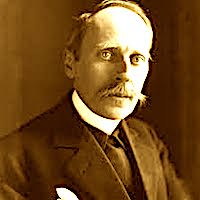
Romain Rolland
1866 – 1944 CE
“The moral consciousness of Europe”
Novelist, historian, dramatist, and mystic; Rolland had a subtle but profound influence on his time. Hermann Hesse dedicated his book, Siddhartha to him and Rolland’s influence shines out through those pages. A student of Swami Vivekananda his understanding and appreciation of Eastern mysticism became an important influence on his friend, Sigmund Freud who began his book, Civilization and its Discontents with a discussion of Rolland’s description of an "oceanic feeling.” Addressing social ills through art and theater, he wrote and staged plays like The Time Will Come, a pacifist drama that explores the cause and effect relationship between capitalism and imperialism as well as exposing the evils of concentration camps and and the inhumane treatment of enemy civilians. He won the Nobel Prize for Literature in 1915.
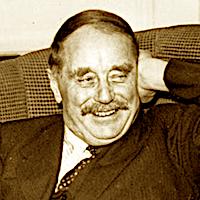
H. G. Wells
1866 – 1946 CE
A father of science fiction and One World Government apostle
Social critic, journalist, prophetic futurist, and “A father of science fiction”; Wells—a prolific writer of novels, social commentary, and history—wrote more than 100 books. He envisioned the World Wide Web, nuclear weapons, satellite television, mass surveillance, and many other un-invented but now common technologies. He also explored both the positive an negative ways of integrating them into civilization. An outspoken socialist and proponent of equality and human rights, Wells had a strong influence on his friend Winston Churchill who peppered his speeches with Wells-quotes. Nominated for the Nobel Prize in Literature four times, his influence extended to almost all modern science fiction writers. A strong believer in the need for us to become citizens of the world under a One World Government, he helped create the UN-adopted Universal Declaration of Human Rights. He worked hard on the creation of the League of Nations but disappointment with its effectiveness and inability of politicians to elevate the common-world good over their personal benefits led to his conjecture that it might be better for another species to replace humanity.
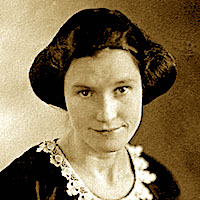
Edith Hamilton
1867 – 1963 CE
Historian, professor, translator, mythologist, and classicist; Edith Hamilton wrote insightful, best-selling books on mythology, Greek, and Roman culture. Her younger sister became the first woman on the faculty at Harvard University and Edith received Greece's highest honor, the Golden Cross. John F. Kennedy consulted with her and Robert F. Kennedy quoted her in his speeches. An educator most of her life in change of the only private US high school for women that prepared all of its students for college, she began her second career as an author publishing her first book, The Greek Way, when she was sixty-two. A biographer, her life was "ruled by a passionately nonconformist vision.. her strength and vitality, her appeal as public figure and author."
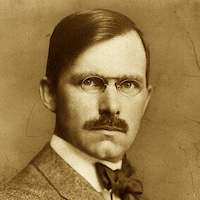
David Grayson (Ray Stannard Baker)
1870 – 1946 CE
One of the most insightful journalists, historians, and biographers of his time
A pioneering muckraker in the late 1800's, Grayson's book, Adventures in Contentment became popular worldwide selling millions of copies. The Atlanta Race Riot in 1906 inspired him to write a book called Following the Color Line which was the first in-depth and influential examination of the racial divide in America. It became knows as, "the best account of race relations in the South." A close friend and supporter of president Woodrow Wilson, he traveled to Europe on his behalf and became his press secretary during the peace negotiations after World War I. He later published 15 books about Wilson, two of which won Pulitzer Prizes. Buildings at the University of Massachusetts, Michigan State University, and an Elementary School in Waterford, Michigan are named after him.

Bertrand Russell
1872 – 1970 CE
“20th century Voltaire”
Bertrand Russell (1872 - 1970)
Nobel laureate for championing “humanitarian ideals and freedom of thought,” famous logician, polymath, historian, writer, and social critic; Russell promoted a world government and a "scientific society.” From one of the UK’s most prominent aristocratic families, he dedicated his life to political and social activism trying to abolish war, poverty, prejudice, and imperialism. A prominent anti-war activist, he went to prison during World War I. In his early 70’s he recreated himself; continued a strong, active and relevant life being arrested and jailed for 7 days because of an anti-nuke protest when he was 89; and persevered using his considerable political influence up until days before he died at 97. A major influence on the development of computer science and artificial intelligence, he worked for nuclear disarmament, gay rights, and world peace.
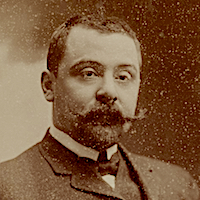
Elie Faure
1873 – 1937 CE
French art historian and essayist
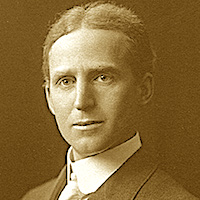
Charles Beard (Austin)
1874 – 1948 CE
Pioneering progressive historian
Historian, professor, and progressive political pioneer; Beard questioned the philosophical motivations of the U.S. founding fathers and described their more influential economic motivations. This view became both highly influential and strongly criticized. He supported US involvement in World War I but opposed it during and after World War II criticizing FDR (although he supported the New Deal) for lying to the American people and tricking them into supporting the war. He thought of the Constitution as a "counter-revolution" established by the rich to prevent an excess of democracy. This became the accepted historical interpretation until it lost favor of the status quo about 1950 but remained influential to less status quo conforming historians.
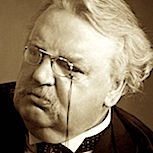
G. K. Chesterton
1874 – 1936 CE
Social critic, theologian, and philosopher turning popular proverbs inside out with deep insight and laugh-out-loud humor; Chesterton was called both the best writer and best thinker of the 20th century, “the most unjustly neglected writer of our time,” and the "prince of paradox.” One of the most prolific authors of all time, he wrote more than 100 books, hundreds of poems, plays, short stories and over 4000 newspaper articles. Over 300 pounds and 6’4,” normally wandering around lost with a cigar in his mouth, writing many of his articles in train stations after inadvertently missing his train; he criticized both capitalism and socialism predicting the modern polemic stalemate of progressives “continually making mistakes” while conservatives continue to “prevent the mistakes from being corrected." He influenced atheist C.S. Lewis’s conversion to Christianity, the movement for Irish Independence, and Gandhi’s movement to end British colonial rule. He “changed the life” of Marshall McLuhan and inspired the novels and writings of Neil Gaiman, Terry Pratchett, Ernest Hemingway, Graham Greene, Agatha Christie, Jorge Luis Borges, George Bernard Shaw, H.G. Wells, E.F. Schumacher, Bertrand Russell and many more.
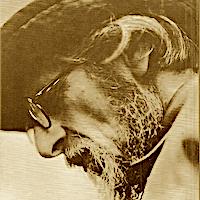
Ananda Coomaraswamy குமாரசுவாமி
1877 – 1947 CE
Perennial philosophy's Citizen of the World
Pioneering Tamil historian and philosopher, prolific author, geologist, metaphysician, and early translator of Indian culture into western terms; Coomaraswamy worked with Rabindranath Tagore, helped with the Indian struggle for independence, and provided an influential and cross-cultural view on becoming citizens of the world. Continually fighting against all forms of racism, he had to leave England because of encouraging Indians to not fight during World War I. Highly critical of Carl Jung and Theosophy for over-simplifying Eastern and indigenous traditions, he became a bridge between East and West, coined the term "post-industrial" and helped define and promote the idea of a perennial philosophy.

Will Rogers
1879 – 1935 CE
One of the most famous and popular, internationally recognized Native American personalities, "Oklahoma's Favorite Son,” humorist, radio and movie star, columnist, and penetrating social commentator; Will Rogers made 71 movies, traveled around the world 3 times, and wrote more than 4000 national newspaper articles. The highest paid movie star of his time and most respected political commentator, he came from a small farm in Cherokee Nation Indian Territory and set an example for Native Americans integrating into White culture and becoming successful without selling out and abandoning their heritage. Wise, kind, and humorous; he teased politicians, gangsters, and ordinary people’s confused convictions influencing them all into better ways.
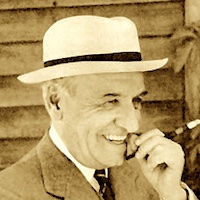
Ortega y Gassett, José
1883 – 1955 CE
Spanish philosopher, historian, and essayist
A professor of Philosophy, Ethics and Logic during his early life, he later began publishing newspaper essays which quickly made him internationally famous. He then branched out into politics supporting socialist candidates but because discouraged by the support for Franko who he strongly opposed. He also opposed the the Spanish Conservative Party, the Spanish monarchy and the Catholic Church but historians still consider him anti-democratic and conservative — a not surprising dichotomy about someone so against rigid belief systems and conformity, someone dedicated to his dictim, "I am me and my circumstance."
Blending another common dichotomy, fate vs. freedom, he explained how fate determines the number of possibilities we have while freedom offers us the possibility of choosing between them creating our own "destiny" instead of hiding behind roles, cultural identities, and conventional ways of living our lives.

Will Durant
1885 – 1981 CE
Philosophy apostle and popularizer of history's lessons
Apostle for philosophy, Catholic priest vocation drop-out, socialist reporter, librarian, professor who quit so he could marry his much younger 15 year-old student who became his 68-year married wife; Durant became not just an ivory-tower intellectual and academic but someone who put the lessons of history into practical lessons useful for average people. He worked for women’s right to vote, equal wages, better working conditions for American labor, and wrote a "Declaration of Interdependence,” that was read into the Congressional Record and started a movement against racial intolerance 10 years before the Civil Rights Movement. Writing “the most successful historiographical series in history,” and awarded a Pulitzer Prize for literature as well as the Presidential Medal of Freedom, he critiqued the West’s “fatal error of perspective:” Eurocentrism, intolerance and provincialism.
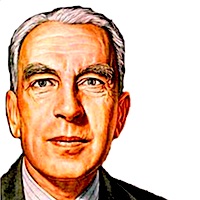
Arnold Toynbee
1889 – 1975 CE
Philosopher of history, international affairs expert, research professor, and prolific author; Toynbee was the the world’s most translated, read, and discussed scholar for much of the 20th century. He wrote hundreds of books and articles translated into more than 30 languages. Applying his insights from studying history to modern political problems, he became a delegate to the 1919 Paris Peace Conference, worked in the British Foreign Intelligence Office, and held a long-term position at the London School of Economics. His historical studies led to persuasive theories about how civilizations arise as a response to extreme challenges by "creative minorities" and how these solutions change the course of cultural evolution. Believing that civilizations most often die from suicide rather than invasion or natural causes, he describes the process of how civil-success leads the people and leaders to a kind of complacency full of nationalism, militarism, and oppressive tyranny.
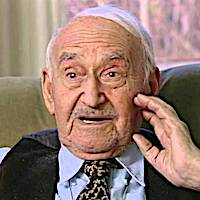
George Seldes
1890 – 1995 CE
Pioneering investigative journalist and champion of the exposé
Star investigative reporter, muckraker, contrary-minded journalist, author, philosopher, and true citizen of the world; George Seldes lived a 104-year life full of adventure in dangerous countries, political challenge on the edge, and philosophical insight threatening the status quo. There and reporting on Hitler’s Berlin, Lenin’s Moscow, Mussolini’s Rome, and Franco conquering Spain; he was often characterized as too radical. Criticized and censored by newspapers, foreign and U.S. governments; one of his censored interviews with the supreme commander of the German Army could have prevented the rise of Nazi power before World War II. Expelled from the Soviet Union after interviewing Lenin and “not showing enough respect,” and from Italy after he implicated Mussolini (who had worked for Seldes before gaining power) in the murder of an opposition leader; he wrote exposés on the Roman Catholic Church, the global arms industry, and the complicity of the press with the tobacco industry in suppressing information on the bad effects of smoking. Toward the end of his life, he spent 20 years gardening and gathering material for a book of the world’s most influential thoughts.
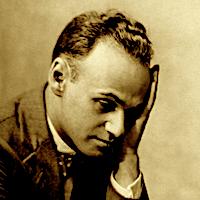
Gilbert Seldes
1893 – 1970 CE
Maker of the first full-length documentary film
Producer, author, critic, director, editor, and educator; Seldes created an immeasurable impact on Western Civilization with his insightful critiques and comments on popular American culture, cultural democracy, and popular history. The first CBS News television director, he pioneered innovative approaches to media and entertainment, hosted popular TV shows, created the the first full-length documentary film; wrote, directed and produced many educational programs. He praised Ernest Hemingway but only earned his disdain; strongly criticized F. Scott Fitzgerald's work but remained close friends. He helped legitimize popular entertainment but called soap operas 'corrupting influences’. An influential advocate for fairness and balance in reporting, his efforts delayed but unfortunately could not prevent the rise of propaganda-TV like Fox News.
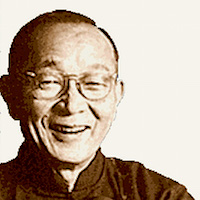
Lín Yǔtáng 林語堂
1895 – 1976 CE
One of the most influential writers of his time, translator, linguist, journalist, inventor, and nominated for the Nobel Prize in Literature; Lin Yutang worked hard to bridge the divides between East and West. He invented and built a Chinese typewriter, romanized the Chinese language, helped publish a Chinese-English dictionary, and brought Chinese culture and wisdom into the Western world’s awareness. Many of his classic Chinese translations became bestsellers helping to popularize Chinese philosophy. A prolific writer, he published magazines, wrote innumerable essays, and his books include more than 14 in Chinese and more than 30 in English. Born into a Christian minister’s family, he later studied and followed Confucianism, Taoism, and Buddhism but returned to a Christian path in his 60’s.
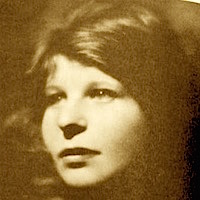
Ariel Durant (Chaya Kaufman)
1898 – 1981 CE
Brilliant conversationalist, champion of women’s rights, student, lover, wife, muse, and equal to Will Durant; Ariel emigrated with her mother to America from the Ukraine when 3 and grew up on the New York streets learning to fight and take care of herself. Will married her when she was 15 and he was 28 and her teacher. They spent the next 68 years together on an intellectual, contemplative, and literary journey writing The Story of Civilization and many other books and articles. Named "Woman of the Year,” she shared a Pulitzer Prize and the Presidential Medal of Freedom with her husband. Constantly introducing him to radical artists, poets, and free-spirits from Greenwich Village to Woodstock, she balanced Will’s pedantic, scholastic personality with love-of-life adventurism. Although running away several times during the early days of their marriage, they came to represent the depths of close relationship, the joining of the two halves of the complete being described by Plato, and the possibilities for marriage.
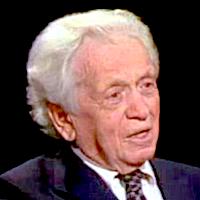
Max Lerner (Maxwell Alan)
1902 – 1992 CE
Journalist, professor, humanist, and controversial cultural commentator; Lerner supported Roosevelt’s New deal, fought against racial discrimination, and gained a high place on Nixon’s hate list. He mainly supported progressive causes but went along with the internment of Japanese Americans during World War II and backed Ronald Reagan. Untied to unthinking political dogma, he was considered a controversial liberal during the 50’s and 60’s but more conservative during the 80’s. A close friend of Elizabeth Taylor, he worked on antiwar efforts, taught at Harvard, Sarah Lawrence, Wellesley, Brandeis, and wrote for the New York Post, the New Republic, The Atlantic, Saturday Review, and many other publications. He applied his dedication to personal responsibility in a struggle with lymphatic cancer which he won and described in a book, Wrestling with the Angel.
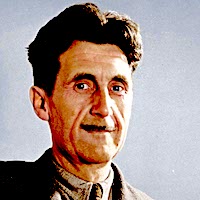
George Orwell
1903 – 1950 CE
English, poet, humanist, apostle of doubt, and powerful political influence
George Orwel, Eric Arthur Blair (1903–1950)
Novel-writing journalist, one of the best English essayists, ranked second on a list of "The 50 greatest British writers since 1945,” insightful literary critic, humanist, poet and powerful political influence; Orwell transformed a life filled with failure, poverty, and humiliation into literary genius and cultural influence. Originator of many words and phrases that have become part of popular culture—"Thought Police", "Big Brother", “Cold War,” "memory hole", "doublethink", “Orwellian,” and "thoughtcrime”—his writing exposed intellectual hypocrisy, social injustice, totalitarian and authoritarian influences, and turned his difficult experiences into great literature.
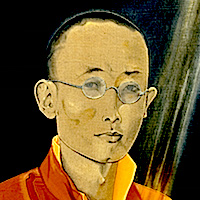
Gendün Chöphel དགེ་འདུན་ཆོས་འཕེལ།
1903 – 1951 CE
Child prodigy, iconoclast, artist, master debater, greatest Tibetan poet of the 20th century, Buddhist monk from an early age, modern Tibet’s first historian, and one of the most influential modern Tibetan intellectuals; Gendun Chopel kept a non-sectarian view throughout his life and challenged cultural, religious, and political dogmas. He lived with Nicholas and Helena Roerich for 2 years helping their son translate the Blue Annals which became a 1275 page book. He abandoned his monastic vows, drank alcohol, practiced and wrote the first Tibetan guide to love and sex. Having traveled and studied widely, he realized the importance of abandoning blind superstition and integrating Tibetan culture into the modern world. Instead of heading his warnings and developing Tibet in this way however, the conservative, status quo establishment had him whipped and imprisoned, ignored his message until the Chinese army arrived in Lhasa.
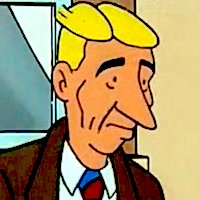
Hergé (Georges Prosper Remi )
1907 – 1983 CE
Intrepid reporter of world culture
Hergé translated world culture—from the past and future, from Native American, African, European, Mid-Eastern, South American, Chinese, and Tibetan—to a world only beginning to open its eyes to a new political and social consciousness just beginning to transcend nationalism. He created a visually engaging, highly entertaining, and wisdom transmitting art form that became one of the 20th century’s most popular publications. Although the early Tintin cartoons and books were used as propaganda by a conservative Catholic newspaper, steered away from political views during the German occupation of Belgium, and although Hergé himself was accused of racism and arrested four times; his positive impact on international consciousness steadily increased as more than 120 million Tintin books were sold and translated into 40+ languages. His travels introduced him to Asian thought which deeply influenced his message. He described his political views by quoting Chuang Tzu.
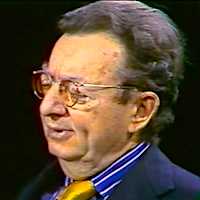
I. F. Stone
1907 – 1989 CE
One of the greatest 20th century reporters
Investigative journalist, author and political commentator; Stone's newsletter was ranked 2nd highest 20th century journalism publications and 16th on top 100 U.S. journalist works. He became a strong and influential voice against McCarthyism, the Vietnam War, and racism in the military. He graduated high school 49th in a class of only 52 students but during that time launched a 65+ year journalist career investigating corruption and exposing how "All governments lie."
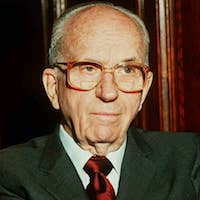
James Michener
1907 – 1997 CE
Historical and Generational Saga Master
Inspired storyteller of the human spirit, Michener created some of our most memorable fictional characters. Often writing for 12-15 hours a day for weeks and weeks, he created books that became best-sellers, movies, Broadway musicals, TV series, and a Pulitzer Prize winner. Because these books were so carefully researched, they became one of the more popular ways of learning about certain historical periods and peoples.
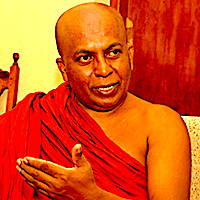
Walpola Rahula Thero
1907 – 1997 CE
“Supreme Master of Buddhist Scriptures”
History professor, Ph.D. in philosophy, active socialist, and first Buddhist monk to hold a chair in a western university; Walpola both brought a more clear conception of Buddhism to the Western world and practical kind of Western politics to Sri Lanka. Given the title, “Supreme Master of Buddhist Scriptures,” he wrote extensively and taught at many universities including UCLA, Swarthmore College, and Western University. He encouraged monks to not only study and practice Buddhism but also to get involved in the political process as a way to translate meditative awareness into a practical influence on society and culture.
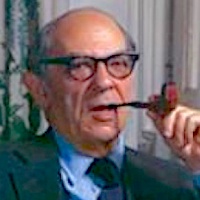
Isaiah Berlin
1909 – 1997 CE
"the world's greatest talker"
Philosopher, political theorist, translator and historian; Berlin lived in Petrograd when he was six during the Russian revolutions of 1917 and then moved to the UK. A star student, he translated famous books from Russian into English and joined the Diplomatic Service during World War II. Highly respected for his lifetime of defending civil liberties, pluralism, and liberal theory; he also became a strong and lasting voice against Communism. With penetrating insight he applied the lessons of history to modern-day problems like nationalism, totalitarianism, racism, and religious bigotry.
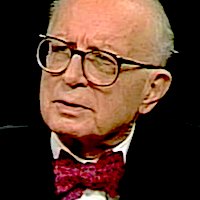
Daniel J. Boorstin
1914 – 2004 CE
American intellectual Paul Revere
“An intellectual Paul Revere,” American historian, US Congressional Librarian, Rhodes Scholar, and Pulitzer Prize winner; Boorstin became a Communist Party member when young, a prominent conservative in later life. Promoting the "consensus school" of history, he praised entrepreneurs and inventors, criticized conformity, bureaucracy, slavery to tradition, and an historical emphasis on class conflict. On a parallel track with Marshall McLuhan he praised, analyzed, and warned about the unintended consequences and social upheaval that inevitably arises from new technology. With self-effacing insight, he looked deeply into American culture both praising and criticizing aspects of this unprecedented historical experiment.
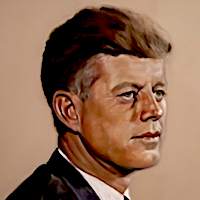
John Kennedy
1917 – 1963 CE
Modern America's most popular president
Journalist, politician, and one of the most respected US presidents of all time; Kennedy inspired a generation and holds the highest presidential average approval rating of 70%—the highest of any president in Gallup's entire history of measuring job approval. He is the only Roman Catholic ever elected president, the youngest person to be elected president, and the second-youngest to serve as president. His book Profiles in Courage, written during his years in the Senate, won a Pulitzer Prize. He established the Peace Corps, supported the civil rights movement, proposed the Civil Rights and the Revenue Acts that were passed after his assassination. He approved the failed Bay of Pigs Invasion but rejected Operation Northwoods, a Joint Chiefs plan to fabricate a false attack to get public support for a war against Cuba as well as successfully navigating the Cuban Missile Crisis. He increased the US presence in Vietnam but—according to Defense Secretary McNama—was strongly considering pulling the US completely out: a position his successor, Lyndon Johnson strongly disagreed with. He began a program called the "New Frontier" to provide federal funding for education, free elderly medical care, aid for poor rural areas, and the ending of racial discrimination; but, these efforts were cut short when he was killed by Lee Harvey Oswald.
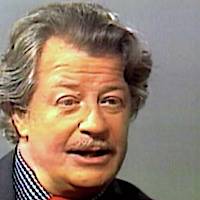
James Clavell
1921 – 1994 CE
Fictionalizing and fictional historian
Thought of as mainly a novelist but at heart an historian with a story-tellers flare for the dramatic, Clavell romanticized history and made it entertaining. Commentators describe Plato as more of a fictional, literature author than an historian; and, in a similar way, Clavell could be deemed more of a historian than a fiction writer. He appears in his novels as Peter Marlowe, a prisoner of war in King Rat, a novelist in Noble House, and a friend in Whirlwind. The non-fictional foundations of his books describe Japanese prison camp life in King Rat, William Adams—the first of a tiny number of Westerns to become a samurai—in Shogun, Jardine Matheson—founding father of one of the first Hong Kong trading companies and now one of the world’s largest companies, and in Whirlwind, the 1979 Iranian revolution in Iran. Also a filmmaker, his credits include The Fly in 1958, To Sir with Love and The Great Escape in the 1960’s, and many popular TV miniseries based on his books.
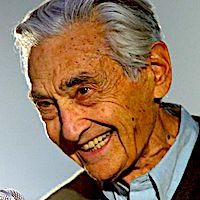
Howard Zinn
1922 – 2010 CE
Historian of the oppressed and defeated
Educational innovator, historian, author of 20+ books, and democratic socialist; Zinn grew up in a family of factory workers who couldn’t afford to buy books or magazines. In a dramatic and life-molding event, when young and participating in a peaceful political rally, he was knocked unconscious by mounted policing charging on the protestors. During the Vietnam War, he supported Vietnam Veterans against the War, the Civil Rights and Labor Movements. He backed the Native American, Black, and Women’s equality efforts, opposed the 2003 invasion of Iraq, and the extensive military bombing of civilian targets. Realizing the omni-influence of the phrase, “History is written by the victors,” he worked hard to popularize the stories of the morally superior but physically defeated historical groups. The success of these efforts could be measured by the identities and allegiances of his major critics: Republican Indiana Governor Mitch Daniels tried to keep his book out of state schools, because of his support for Martin Luther King, the FBI added him to their Security Index and label him a high security risk, and—even as recently as 2017—an Arkansas legislator tried to ban his books from public schools.
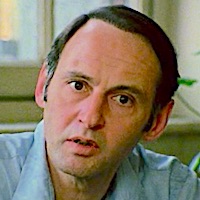
Paul Avrich
1931 – 2006 CE
(1931–2006)
Historian, professor, author; Avrich specialized in 19th and early 20th century anarchism. He wrote 10 books (several nominated for Pulitzer Prizes), supported anarchism's major figures, and named his cats after Bakunin and Kropotkin.
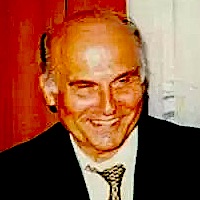
Ryszard Kapuściński
1932 – 2007 CE
“One of the most credible journalists the world has ever seen"
Poet, journalist, photographer, secret service agent, and author; Kapuściński was called ”The master of modern journalism", "Translator of the World,” "The Greatest Reporter in the World", "Herodotus of our times", and "Third World chronicler.” He lived through and reported on 27 revolutions and coups, was jailed 40 times, lost his career-journalism job because of his Polish pro-democracy support, and survived 4 death sentences. “One of the most credible journalists the world has ever seen" and a deep, compassionate thinker; he used innovative literary techniques including “magical journalism” to record his philosophical reflections on decolonization, political corruption, and major world events as well as on their their psychological significance.
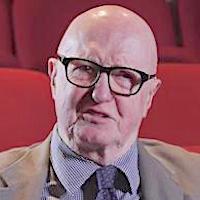
Philip French
1933 – 2015 CE
Film critic, radio producer, and journalist; French regularly wrote columns in The Observer for 50 years. Described as "an inspiration to an entire generation of film critics," his comments became almost legendary and it's estimated that he saw over 14,000 films.
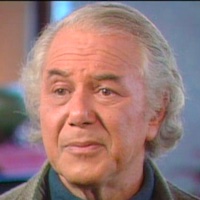
Jacob Needleman
1934 CE –
American religious scholar, historian, philosopher, and author
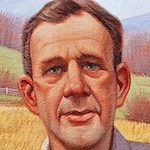
Wendell Berry
1934 CE –
Defender of small-farm values and sustainable agriculture, champion of appropriate technology and environmental causes, cultural conscience and effective critic of industrial farming, environmental degradation, and materialistic lifestyle; Berry’s prolific writing beginning with articles in the early 70’s for Rodale Press, Organic Gardening, and The New Farm and continuing through more than 50 books has inspired new generations willing to put place over ambition, sustainability over wealth, family and friends over fame, making the world a better place over power and prestige.
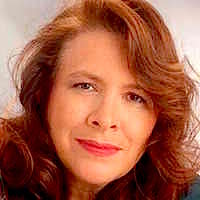
Jean Houston
1937 CE –
Visionary thinker, philosopher, scholar, historian, and author of 26 books; Jean Houston was trained by Teilhard de Chardin, Eleanor Roosevelt, as well as her father who was Bob Hope’s main comedy writer for 35 years, She’s an active consultant to leaders of 25 countries, worked with the United Nations and UNICEF in more than 100 countries, and helped Hillary Clinton write her book, It Takes a Village. She participated in LSD research before it became illegal and is considered one of the main founders of the Human Potential movement. Her friend and mentor Margaret Mead lived with her the last few years before she died and another lifelong friend, Buckminster Fuller said her “mind should be considered a national treasure.”
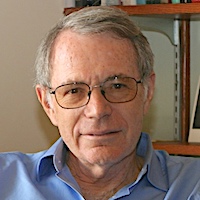
Eric Foner
1943 CE –
Historian, professor, Pulitzer Prize winner

Molly Ivins
1944 – 2007 CE
Biting but humorous social commentator
Political commentator, witty newspaper columnists, and author; Molly Ivins won many awards but the ones she was most proud of included being banned from the Texas A&M campus and having the Minneapolis police force naming their mascot pig named after her.
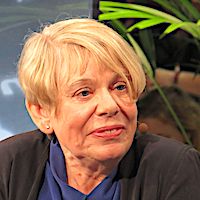
Karen Armstrong
1944 CE –
Champion of the Golden Rule and perennial philosophy
Catholic nun drop-out, mystical Christian, clear-thinking religious historian, and strong proponent of inter-faith dialogue; Karen Armstrong applies her historical work to the polarization and religious fundamentalism of today’s world. Her conclusions led to an emphasis on the importance of realizing the perennial philosophy, the Golden Rule, and critical need for compassion in the modern world. Her 20+ books, many lectures, and articles develop this theme while also attracting criticism for over-looking and trying to justify the negative aspects of religions.
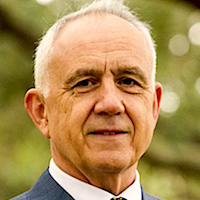
Jack Weatherford
1945 CE –
Jack Weatherford (1945 - )
Anthropologist, specialist in tribal histories and cultures, and deep thinker about the events and influences of historical events; Weatherford has worked hard uncovering the histories re-written by the victors like the many positive influences of American Indians on US culture, politics, medicine, agriculture, and ecology. This extended to the indigenous cultures of Bolivia, the Amazon, Mongolia and many other little known cultures. For this kind of work, he was awarded Mongolia’s highest national honor for foreigners.
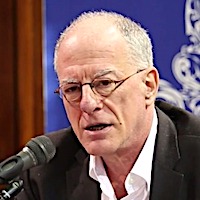
Paul Berman
1949 CE –
Insightful political commentator and expert on totalitarianism
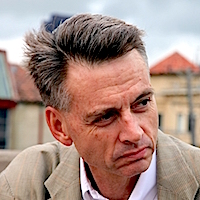
Robert Wright
1957 CE –
Radical centrist, army brat, popular professor, science editor, journalist and prize-winning author; Wright has applied his journalistic skills to translating and interpreting complicated scientific and religious principles. With understanding and insight, his books and articles disentangle the convoluted juxtrapositions interconnecting religion, philosophy, psychology, politics, and science. His decoding of the perspectives of evolutionary psychology and applying them to everyday life offers a valuable key to finding a sane way in these rapidly changing times.
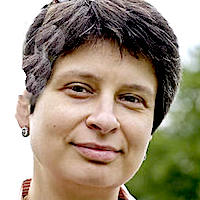
Nina Lvovna Khrushcheva Нина Львовна Хрущёва
1964 CE –
The adopted granddaughter of Nikita Khrushchev and daughter of his biological granddaughter, Nina grew up in the midst of an intense political environment witnessing the rise and fall of Soviet Russia. She saw first hand how Khrushchev was vilified in both Russia and the USA while repudiating Stalin’s legacy of terror and totalitarianism which killed between 30 and 60 million people, releasing millions of Stalin’s victims from gulags, and spearheading reforms that allowed greater political, personal, and artistic freedoms. Now an American Professor of International Affairs, Senior Fellow of the World Policy Institute, and a Contributing Editor to Project Syndicate; she shares her insightful political commentaries in Newsweek, The New York Times, The Wall Street Journal, The Financial Times and in many other publications and boo
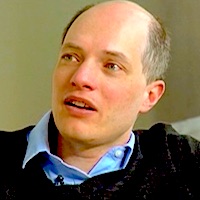
Alain de Botton
1969 CE –
Philosophic link between ancient wisdom and modern challenge
School of Life and Living Architecture co-founder, philosopher, public speaker, author, and ”Fellowship of Schopenhauer" winner; Alain de Botton makes major steps in linking philosophy to the practical concerns of everyday life. His many books, talks, and “School of Life” learning sessions help bring down the deep philosophical insights of ancient and modern thinkers into the practical realms of modern life. The School of Life—based in 11 different countries—provides an “emotional education” that challenges conventional universities by focusing on livelihood, relationships, and wisdom rather than only knowledge, by searching for meaningful life paths, and by expanding ways of evolving a greater cultural goodness. From a very wealthy but materialistic family, de Botton shuns a vast trust fund and lives only on his personal income.
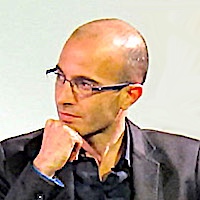
Yuval Harari יובל נח הררי
1976 CE –
Israeli historian, professor, and philosopher
Harari lives with his husband in a small, cooperative community near Jerusalem where he teaches, and writes thoughtful, challenging books. His best-seller, Sapiens—already translated into 45 different languages—examines our history going all the way back to the Cognitive Revolution 70,000 years ago and describes an unconventional but hard-to-dismiss view of progress, technology, free will, and the future. A strong advocate for animal rights and close student of S. N. Goenka, he practices and teaches Vipassana meditation as well as using it as a research tool for developing his understanding of history, evolution, and the nature of human cultur
Related Sources (2 sources)
Outline of History by H. G. Wells
The Proper Study of Mankind by Isaiah Berlin
Quotes about the Historians / Journalists Lineage (20 quotes)
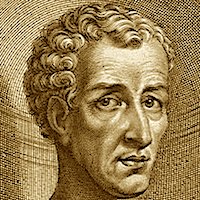
“History has this and this only for its own: if a man will start upon it, he must sacrifice to no God but Truth; he must neglect all else; his sole rule and unerring guide is this – to think not of those who are listening to him now, but of the yet unborn who shall seek his converse.”
Comments: Click to comment

“Whatever the poets pretend, it is plain they give immortality to none but themselves; it is Homer and Virgil we reverence and admire, not Achilles or Aeneas. With historians it is quite the contrary; our thoughts are taken up with the actions, persons, and events we read, and we little regard the authors.”
Comments: 1 comment

“History is the national conscience of the human race... only by virtue of it does the human race come to be whole, come to be a humanity This is the true value of history.”
Comments: Click to comment
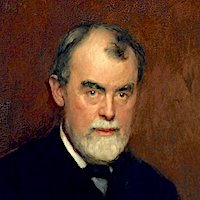
“The development of journalism made it essential that by far the greater part of what is said or done in the world should be so ephemeral as to take itself away quickly; it could keep for 24 hours but not for a week. If that long, it would prevent people from going on to something else.”
Comments: Click to comment
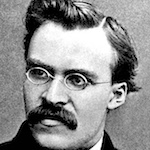
“By searching out origins, one becomes a crab. The historian looks backward; eventually he also believes backward”
Comments: Click to comment

“No one work can be detached from a life and studied separately. They are all fragments of one monument. The mistake that most historians make is to mutilate this genius by dividing it into different pieces.”
Comments: Click to comment

“A people’s literature is the great textbook for real knowledge of them. The writings of the day show the quality of the people as no historical reconstruction can.”
Comments: Click to comment

“History is a part of philosophy, an attempt to achieve a large perspective on life and reality, an attempt to achieve philosophical perspective by a study of events in time—a large perspective that determines our attitudes toward all parts of reality and life.”
Comments: Click to comment
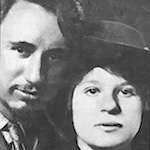
“We know that a lifetime is but a moment in history, and that the historian's best is soon washed away as the stream of knowledge grows. But we confirmed our belief that historiography has been too departmentalized, and that some of us should try to write history whole as it was lived, in all the facets of the complex and continuing drama.”
Comments: Click to comment

“We think there is more violence in the world than before, but in truth there are only more newspapers; vast and powerful organizations scour the planet for crimes and scandals that will console their readers for stenography and monogamy.”
Comments: Click to comment
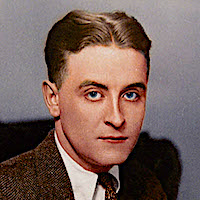
“The more strong lights, the more spiritual scandal you can throw on the matter, the more money they pay you, the more the people buy the issue.”
Comments: Click to comment
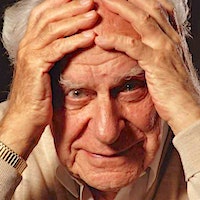
“historicism is a social and political and moral (or, shall I say, immoral) philosophy, and it has been as such most influential since the beginning of our civilization.”
Comments: Click to comment

“As historians added their visions of the past to the human comedy, novelists created wide-angle mirrors for their readers and their times. Now authors—with the aid of publishers and sales figures, received speedy feedback and became increasingly tempted to give the whatever they wanted. The author-creator himself became the audience of his audience.”
Comments: Click to comment
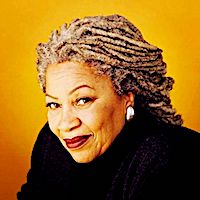
“No one can blame the conqueror for writing history the way he sees it, and certainly not for digesting human events and discovering their patterns according to his own point of view. But it must be admitted … that conventional history supports and complements a very grave and almost pristine ignorance.”
Comments: Click to comment
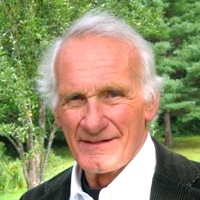
“The primary work of historians is to open all cultural termini, to reveal continuity where we have assumed something has ended, to remind us that no one's life, and no culture, can be known”
Comments: Click to comment

“Historians sometimes speak of trends, of cycles, of currents, of forces, as though they were describing natural events. In doing so they must dehistoricize themselves... Genuine historians... who understand themselves to be historical abandon explanation altogether... Explanation can tolerate a degree of chance, but it cannot comprehend freedom at all.”
Comments: Click to comment

“I also imbibed a way of thinking about the past in which visionaries and underdogs—Tom Paine, Wendell Phillips, Eugene V. Debs, and W. E. B. Du Bois—were as central to the historical drama as presidents and captains of industry, and how a commitment to social justice could infuse one's attitudes towards the past.”
Comments: Click to comment

“This is the best reason to learn history: not in order to predict the future, but to free yourself of the past and imagine alternative destinies. Of course this is not total freedom – we cannot avoid being shaped by the past. But some freedom is better than none.”
Comments: Click to comment
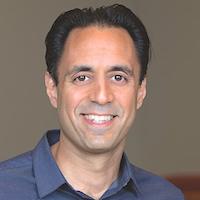
“Historians should not be in the business of explaining as much as possible with as little as possible... our job as historians is to extract principles, not punchlines...”
Comments: Click to comment
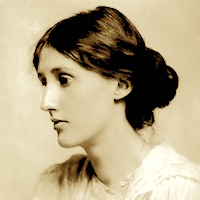
Comments (0)